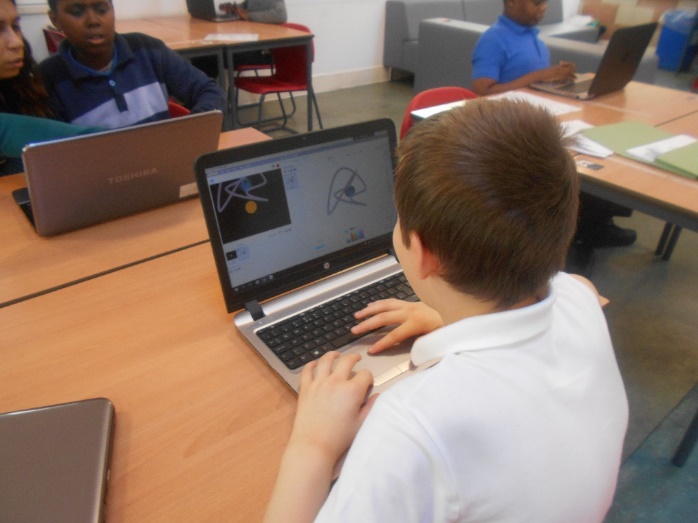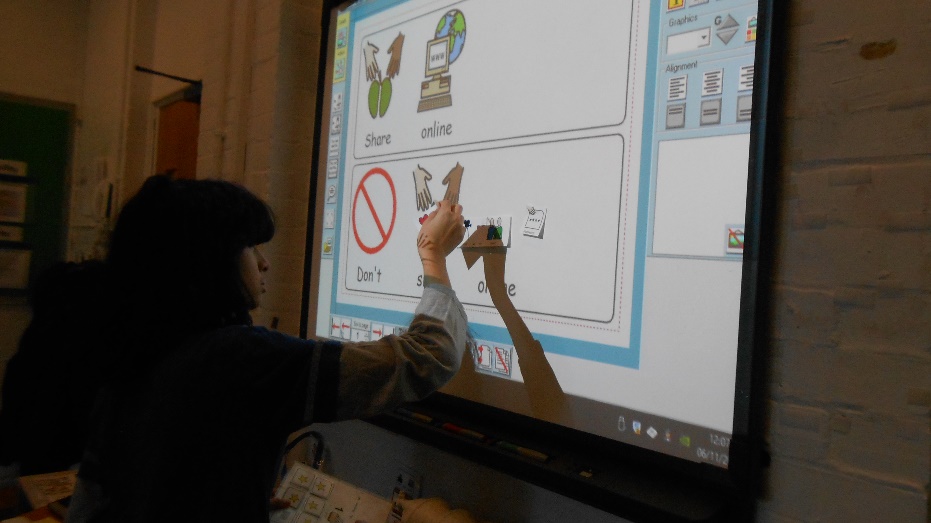
Computing at Spa Bermondsey
Computing is an integral part of our everyday life and will play an immeasurable part in our pupils’ future. At Spa Bermondsey we acknowledge the vital role that technology plays in preparing today’s children for tomorrow’s world. We strive to deliver an imaginative and stimulating Computing curriculum that supports our pupils to develop the practical skills they will need in the future. Each year focuses on the three aspects of the computing curriculum: computer science, information technology and digital literacy. Through the teaching of these areas and Online Safety, we aim to ensure that pupils are competent and confident creators and users of technology.
Our pupils have many opportunities to use technology. While all the basics IT skills are covered, e.g. making a simple Word document or using Paint programs, we are also beginning to blog, make web pages, create computer games and animation. The use of Computing also enhances and extends our pupils’ learning across the whole curriculum whilst contributing to motivation and the development of social skills.
Computing encourages pupils to develop an understanding of how technology makes a difference in all aspects of life - at home, at school and in the workplace, as well as considering the impact technology has had on society over the years.
In Key Stage 3, pupils are introduced to the three areas of the computing curriculum - In computer science pupils are taught computational thinking where they learn to sequence parts of a story or the steps in a life skill, using objects and images. They create a floor algorithm using arrows and symbols to denote different actions and create their own rules for others to follow. In information technology pupils are taught how to create multimedia content using apps or software e.g. creating animation, eBooks and presenting their contents using software. In digital literacy pupils are taught all aspects of keeping safe online and creating digital media.
In Key Stage 4, pupils build on computing skill and knowledge learnt from KS3. In computer science pupils are taught programming, completing more complex tasks with algorithms and using coding programs. In information technology pupils build on their ability to use software to create content e.g., data and spreadsheet and in digital literacy pupils are taught all aspects of online safety and using multimedia software to create content e.g. animation, video, digital art, sound and music
In Key Stage 5 learning focuses on life skills and employability, ensuring pupils can access community services using ICT and can use the internet responsibly and effectively to find the information they need. They also cover the three strands of computing curriculum building on the skills and knowledge learnt from KS4. They learn about researching using the internet, collaboration, and communication online and offline, social networking, sharing contents e-safety and digital footprints. For employability skills the learn how to send and receive electronic mails and text messages with emphasis to “netiquette”.
The Computing curriculum is taught in a progressive and sequential manner. The pupils will move on to learning key computing skills and building competence in these before applying the skills into a wider context outside of school. The computing curriculum provides a framework for progressive learning to take place. It also lends itself to introducing a range of cross curricular learning including Maths, (sequencing, counting, handling data), Literacy skills (reading, writing, speaking and listening), key individual communication targets and promoting independence e.g., ordering shopping online, using technology out in the community). The aim at Spa is for computing to feed into as many areas of the curriculum as possible as well as support students in achieving their EHC targets, particularly those around communication, independence, and emotional health.
In each lesson, pupils will have a learning objective that focuses specifically on knowledge and skills of the element or strand of computing being taught through that unit and will build on one another as the unit progresses, with lots of opportunities for practicing the learnt skill, applying and transferring skills learnt across the curriculum.
In KS4 some pupils follow WJEC Entry Level Pathways, and complete units in document editing, email and storing and retrieving data. And some take Functional Skills examination in ICT
At KS5 pupils’ complete tasks towards the ASDAN ICT transition challenge accreditation and some take Functional Skills examinations in ICT.


